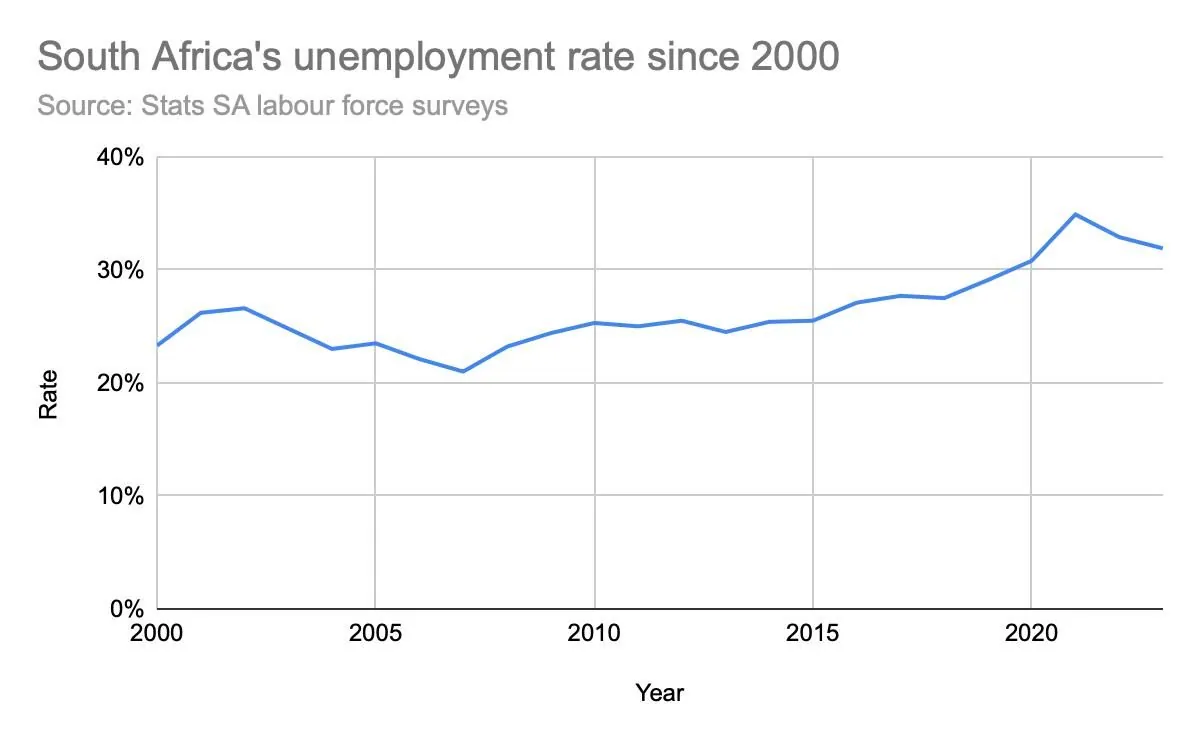South African Coalition: Navigating Challenges for Economic Growth
South Africa's new coalition government faces potential conflicts but remains focused on economic reforms. Democratic Alliance leader emphasizes job creation and poverty reduction as key priorities.

In a surprising turn of events, South Africa's political landscape has undergone a significant transformation. The Democratic Alliance (DA) and the African National Congress (ANC) have formed an unexpected coalition government, marking a new chapter in the country's democratic journey.
John Steenhuisen, leader of the DA, addressed the potential challenges facing this unique partnership. Speaking at a Cape Town sports club, he acknowledged the likelihood of disagreements between the center-right DA and the left-leaning ANC over the next five years. However, he emphasized that such conflicts would not be "catastrophic" for the government's objectives.
This coalition, formed approximately 15 months ago, came about after the ANC lost its parliamentary majority for the first time since the end of apartheid in 1994. The partnership, which includes eight smaller parties, aims to tackle South Africa's pressing issues, including a staggering 32% unemployment rate - the highest globally outside of war zones.

Steenhuisen, now serving as the Minister of Agriculture, stressed the DA's unwavering focus on economic growth and job creation. He stated, "Growth and jobs. Me and my party are not going to let anything get in the way of that." This commitment aligns with the urgent need to address South Africa's economic challenges, as the country's GDP growth has been minimal in recent years, with only 1.9% growth in 2022 and 0.6% in 2023.
Despite the shared goal of economic reform, the coalition faces potential conflicts on various policy issues. One such disagreement revolves around an education bill that President Cyril Ramaphosa is expected to sign into law. The DA has expressed strong opposition to this legislation and has indicated its willingness to challenge it in court if necessary.
Another point of contention is the proposed national health law, which critics argue could negatively impact the private healthcare sector. Steenhuisen confirmed the DA's intention to legally challenge this legislation as well.
"Economic growth and job creation. Growth and jobs. Me and my party are not going to let anything get in the way of that."
Despite these differences, Steenhuisen highlighted a "long list" of policies on which the ANC and DA have found common ground since the coalition's formation. He emphasized that the DA could be the ANC's strongest ally in implementing economic reforms to combat poverty and create jobs.
South Africa's unique position as Africa's second-largest economy and its rich biodiversity present opportunities for growth. The country's progressive constitution and multicultural diversity, often referred to as the "Rainbow Nation," provide a foundation for inclusive development.
As the coalition government navigates these challenges, it aims to leverage South Africa's strengths, including its mineral wealth as the world's largest producer of platinum, chrome, vanadium, and manganese. The country's potential in sectors such as tourism, showcased by its numerous UNESCO World Heritage Sites and extensive wine routes, could also contribute to economic revival.
The success of this unlikely partnership between the DA and ANC will be crucial in addressing South Africa's deep-rooted issues of poverty, inequality, and unemployment. As the nation moves forward, the world watches to see if this "marriage of inconvenience" can indeed bring about the necessary changes to revitalize Africa's most advanced economy.


































